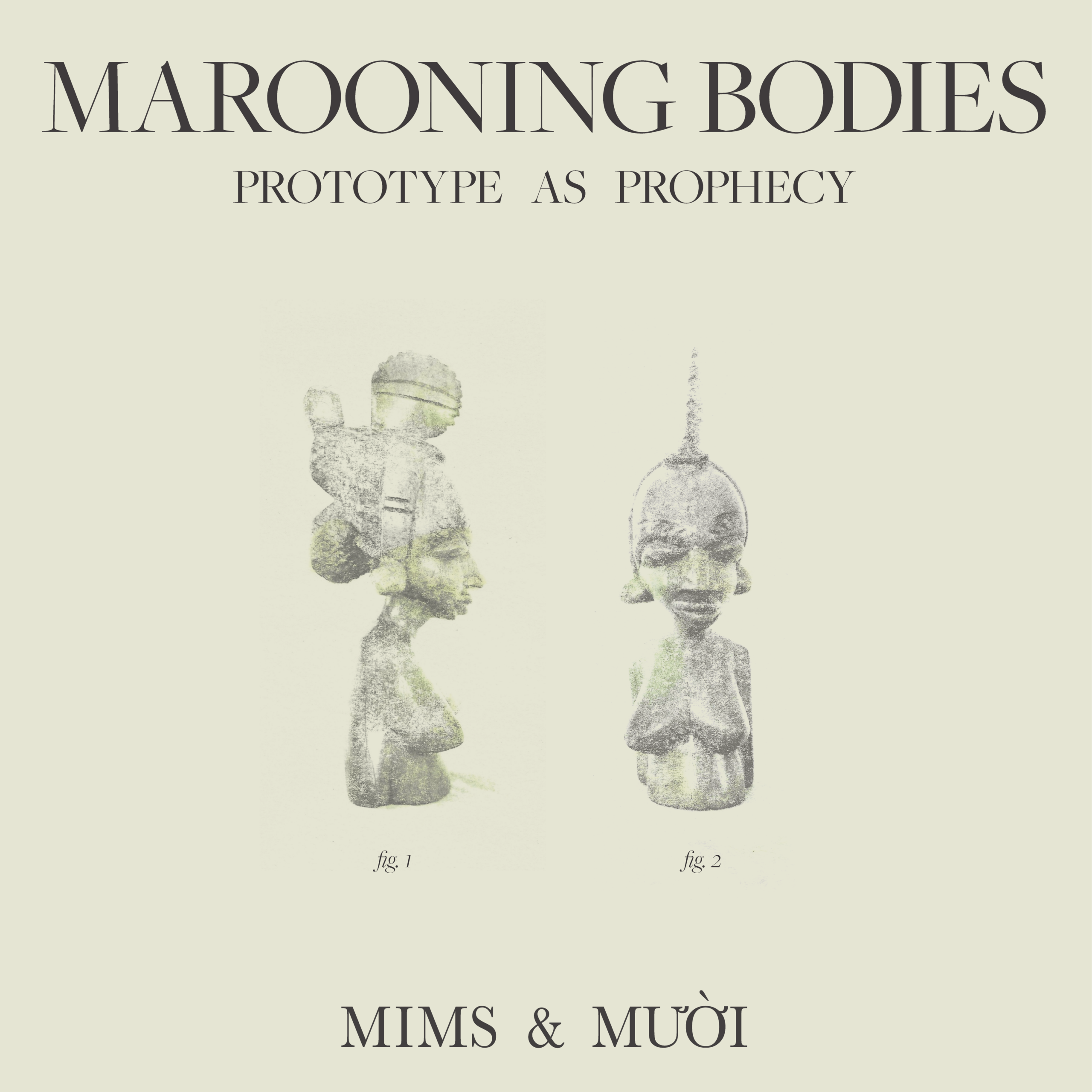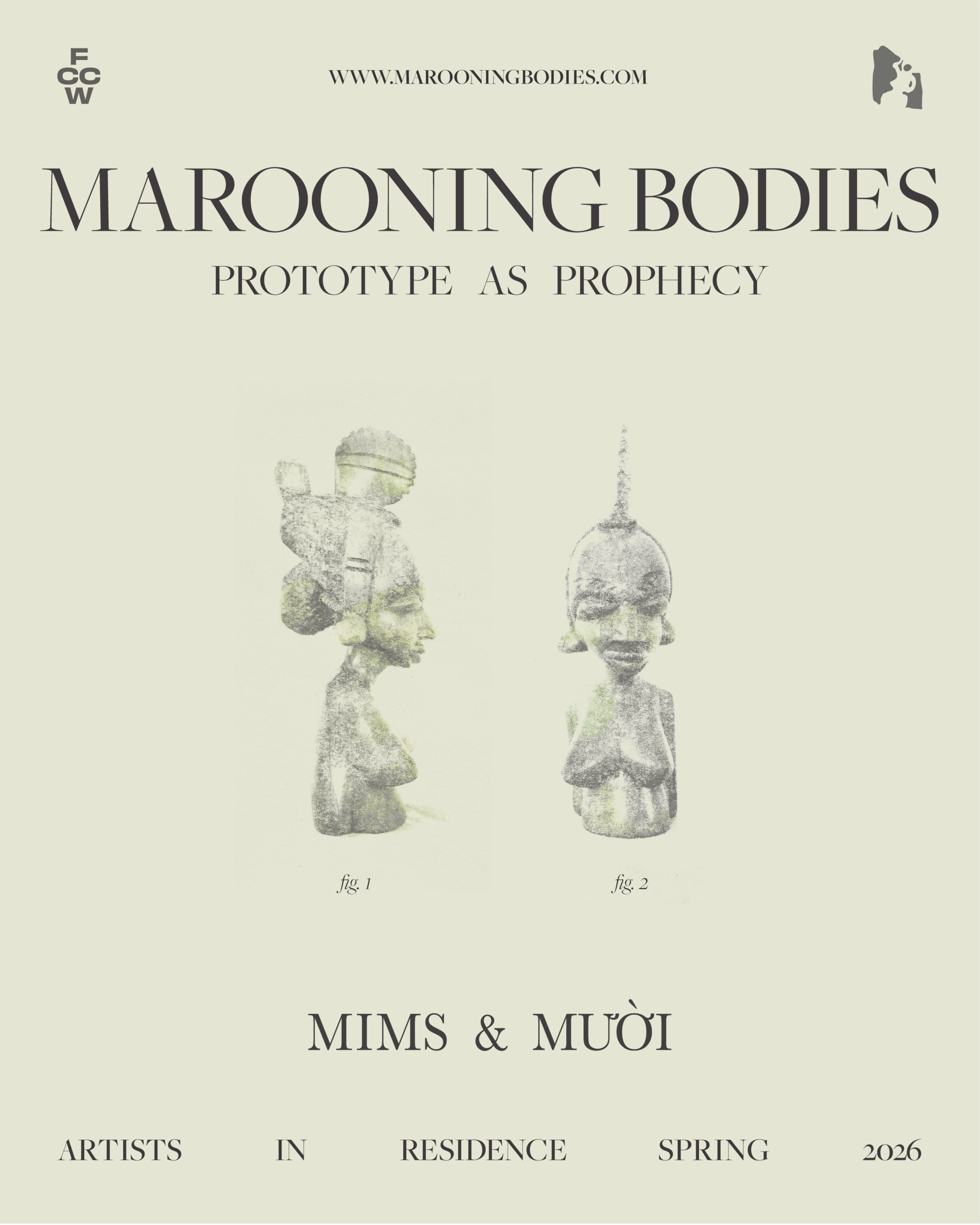About FCCW’s Artist In Residence Program
Started in 2019, FCCW’s Artist in Residence program supports women, trans, nonbinary, and other gender-marginalized artists with three-month residencies that provide structural, material, and staff support in service of a significant project. Each residency culminates in a public presentation and collaborative programming that invites the FCCW community into the artist’s practice.
We prioritize artists whose work engages intersectional feminist themes and includes opportunities for social activation and community engagement. We especially encourage BIPOC, LGBTQ, disabled artists, and those who have a deep connection to Southern California* to apply.
Past AIR projects have explored a range of issues, including exploitative globalization within new age therapies, prison abolition, parental labor, co-building trauma-informed somatic AI, and diasporic lineage and memory through immersive installations, co-learning frameworks, and collaborative events.
Each selected artist receives:
- A three month-long residency at FCCW’s space in Northeast LA, including access to the space for planning and production, and exhibition.
- A $7,500 stipend to support them during their time in residency
- A production budget to develop the work, and support accompanying programs.
- Dedicated staff support to develop the projects and programming in collaboration with FCCW and community.
- Professional documentation of all work and events.
- Support in applying for additional funding for the residency project, or other related projects.
- When appropriate, the publication of an accompanying book through Co-Conspirator Press (to complete after the residency period).
*Please note that the residency does not include a travel or housing stipend, beyond the artist fee. We are prioritizing local artists, who are able to be in Los Angeles consistently during their residency period.
Latest Artist in Residence

Mims and Mười present Marooning Bodies: Prototype as Prophecy
Rooted in the long-term project Marooning Bodies, this open studio residency invites the public into the evolving ecosystem of an immersive worldbuilding game that asks communities to imagine how they might live, govern, heal, and create together. Rather than presenting a finished work, Prototype and Prophecy reveals the process of worldmaking itself.

Marooning Bodies: Gameplay Sessions
Saturday, March 14, 4–7PM
Saturday, April 4, 12–3PM
FCCW: 3053 Rosslyn St., LA, CA 90065
Max attendance: 20 per session
Free
Join us for two gameplay sessions of Marooning Bodies, an immersive world-building game where communities come together to imagine new ways of living, caring for one another, and responding to challenges collectively. Players are guided through a series of questions and scenarios about how a society might organize itself. Together, you will make decisions about shared resources, community rituals, responses to harm, and systems of care. Along the way, you will be invited to reflect, discuss, and create through simple writing, drawing, movement, or storytelling prompts.
Past Artists In Residence
- Silvi Naçi: skin to sky: radical play as resistance — Fall 2025
- Mahjong Mistress: Beyond The Table — Spring 2025
- Yves B. Golden: The Burden — Fall 2024
- BEI (Belief Entity Identifier) Project by Revolution School
- LYLEX 1.0 by PHILTH HAUS
- Cassandra Press
- Letters from the Etui
- Ahree Lee
- Adee Roberson
- gloria galvez
- Sarita Dougherty
- Yasmine Diaz
- iris yirei hu
- Moozies
- Intersectionality Now
- Small Fries, Full Lives
- Carol Zou
- Void of Course
- Aryana Ghazi-Hessami
- Allison Conner